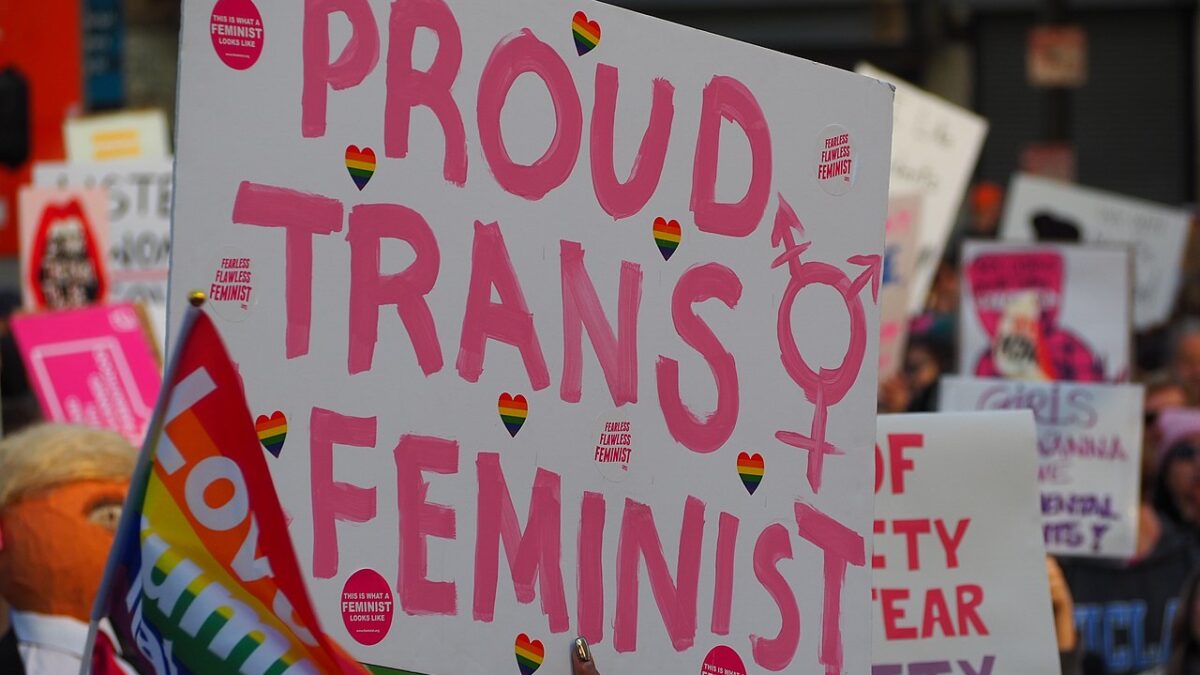
The pro-life student group Choose Life at Yale held its first annual conference October 17-19. “Vita et Veritas: Promoting a Culture of Life and Truth” featured Amherst political scientist professor Hadley Arkes, Loyola Marymount philosophy professor Christopher Kaczor, Feminists for Life vice president Sally Winn, and Clarke Forsythe and Bill Saunders of Americans United for Life, among others. Below is an adapted excerpt from First Things junior fellow Tristyn Bloom’s remarks “Beyond the Pro-Life Pep Rally: Where Do We Go From Here?”
I want to try and get at what the actual problem is here, because I don’t think it’s that we don’t have sufficiently compelling apologetics. I don’t think it’s that we don’t do a rigorous enough job of getting our message out there. I don’t think it’s that people can’t conceive of something they can’t see as human. I think the actual problem here, I think the reason people continue to defend abortion is because, essentially, of existential terror: fear of what will happen when something unexpected, uninvited, unplanned bursts into our lives demanding action. I think that is a crippling psychological problem that doesn’t even rise to the level of morality, that we can’t just tell people to suck up and get over.
We often hear that a problem with young people today is that we are irresponsible. We don’t have a sense of duty. We don’t have a sense of order. We’re immature. I think that the problem is actually the opposite.
I think that we are pathologically terrified of risk and I think that we have this enslavement to our own ideas of respectability, our own ideas of our life plan, our commitments, our existing duties such that something as radically changing as a new life doesn’t fit in with those existing duties. To accept that life would be the irresponsible choice, and that’s the framework from which a lot of people are operating. They see themselves as accepting consequences, as responsible. They have a semblance of a moral framework and we can’t ignore that just because it’s completely the opposite of our own. And this isn’t just about whether or not you accept a child. I think that we are so enslaved to a plan, and a routine, and a vision of our lives, we can’t embrace the unsettledness, openness, flexibility, and folly it takes to have an actually pro-life culture in every instance.
If you look at even the language used — “unplanned pregnancy” because that is the strange case. The normal case is the planned pregnancy. And this is understandable in two ways. One, it’s a concession to comfort and the economy of family. Not everyone in the pro-life movement is against contraception, for example. But the other, I think, is a psychological necessity because two, in a certain sense we are very unwilling to admit that we are all essentially accidents.
Especially for secular people, or people with different theological assumptions, that is what the creation of life kind of amounts to. Scientific materialism seems to force us to admit this. And I feel that on some level modern parents compensate for this meaninglessness by investing their child with meaning through planning. You were chosen. You were fated. You were designated. They are compensating for the meaninglessness of the way conception happens by choosing it on their own and by actively bestowing that significance upon them. We are the little gods of our own children. And we extend this to everything in our lives. In our education. Where we live. What we do. How we eat. Everything imbued with meaning by the fact of being chosen. And these choices, in turn, define us back to ourselves.
So, when we have something unchosen, unplanned, uninvited, it’s a direct attack against the very core of our being. And that’s why I started out with existential terror. It is a violent feeling thing and when confronted with the possibility of such a rupture in our lives it becomes this monstrous, almost apocalyptic force and that’s very mistaken. It’s a cowardice inbred in this way of thinking about life. I had a somewhat similar experience. I got kicked out of Yale in 2010. It’s actually not an exciting story, so I won’t bore you with it. But, you know, young undergraduate Ivy League student, first generation college student gets kicked out, that’s a terrifying experience. It seems like it’s going to be life ending. It seems like it’s going to be damning. It seems like it’s going to be apocalyptic. But then, of course, as many here know, apocalypse doesn’t mean destruction, it means uncovering.
And so I think that these little apocalypses in our lives, whether they come in the form of an unplanned pregnancy or some other risk that we are called to take in the course of our lives, reveal the insignificance of all these other forces that we are shielding ourselves with — their fragility, their utter shallow importance in the grand scheme of things — but also the incredible, radical, bigness of life all around us. We do need limitations, we do need structure. We can’t wrap our heads around just how big and insane life can be. We need to render life intelligible in some way, but we can’t so utterly depend on these relatively insignificant duties and commitments that we sacrifice joy, and spontaneity, and life itself, to maintain the fiction that life is a small as we’ve told ourselves it is.
We have this idea that the word “risk” is inherently bad. If someone is risky that is a bad person, which makes absolutely no sense to me because, To settle back in a slightly Christian mode, certainly Christians are not people who live their lives avoiding risk. They are not the responsible, safe people who are doing sensible things. The best Christians look like madmen in many senses, and they are plenty of secular examples of this, too.
Zorba the Greek, which is one of my favorite novels, is full of stories of this, about how fully and vibrantly one can embrace life when one runs off and has a wild adventure. Zorba himself has this quote “Life means undoing your pants and looking for trouble.” Which in the context of this conference sounds like a terrible pun, but I think that essentially what this means on a practical level is that we need to get over this bourgeois bohemian obsession with order and plans, and open ourselves up to risk in many ways. Not just when it comes to contraception and conceiving a child.
I am probably more libertarian than most people in this room and something that we do in our camp is encourage the young people to sort of break small laws once in a while, just so they go and overcome this terror of the government and so they actually have to confront the choices that they are making and which laws they need to follow and which ones are kind of nonsensical. So they can think critically about their environment.
I think that a similar thing here is conditioning ourselves to be welcoming of risk, and welcoming of interruptions to our plans, and not taking our plans very seriously to begin with. This can obviously be taken to stupid extremes, which is why this isn’t really a system, but sort of an attitude adjustment. So, yeah, basically I think it’s important, I think when we talk about a pro-life culture I actually think in some ways that does mean a pro-risk, pro-flexibility culture.









